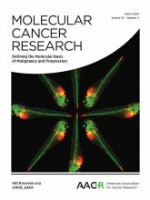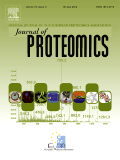
Proteomics Clinical Applications
Scope & Guideline
Fostering Knowledge Exchange in Clinical Proteomics
Introduction
Aims and Scopes
- Clinical Biomarker Discovery:
The journal prioritizes research that identifies and validates novel biomarkers for various diseases using proteomic techniques, facilitating early detection and personalized treatment. - Disease Mechanisms and Pathophysiology:
A core focus is on elucidating the molecular mechanisms underlying diseases through proteomic analysis, contributing to a better understanding of disease pathology. - Technological Advancements in Proteomics:
The journal highlights innovative methodologies and technologies in proteomics, such as mass spectrometry, which enhance the analysis and interpretation of complex biological samples. - Integration of Multi-Omics Approaches:
Research that integrates proteomics with other omics data (genomics, metabolomics) is encouraged, providing a comprehensive view of biological systems and disease states. - Clinical Applications and Therapeutic Insights:
Studies that translate proteomic findings into clinical applications, including drug development and therapeutic strategies, are significant for the journal's scope.
Trending and Emerging
- Metabolomic Integration with Proteomics:
Recent publications have increasingly focused on the integration of metabolomics with proteomics to provide a more comprehensive understanding of disease states, particularly in metabolic and degenerative diseases. - Artificial Intelligence and Machine Learning Applications:
There is a growing trend towards utilizing AI and machine learning techniques to analyze proteomic data, enhancing biomarker discovery and improving diagnostic accuracy. - Personalized Medicine and Targeted Therapies:
Research emphasizing the role of proteomics in personalized medicine is on the rise, highlighting the importance of tailored therapeutic approaches based on individual proteomic profiles. - Extracellular Vesicles and Secretomes:
Studies investigating the role of extracellular vesicles and secretomes in disease mechanisms and biomarker discovery are emerging as a prominent theme, reflecting their significance in cell communication and pathology. - Focus on Chronic Diseases and Comorbidities:
There is an increasing emphasis on understanding the proteomic landscape associated with chronic diseases and their comorbidities, such as diabetes, cardiovascular diseases, and cancer, which is essential for developing effective management strategies.
Declining or Waning
- Basic Research in Non-Clinical Settings:
There has been a noticeable decline in papers focusing solely on basic proteomic research not directly linked to clinical applications, as the journal emphasizes translational and applied research. - Single Omics Studies:
Research centered exclusively on proteomics without integrating other omic data has become less common, suggesting a trend towards more holistic approaches in studying diseases. - Proteomics in Non-Human Models:
The focus on animal models and non-human systems is waning, with more studies concentrating on human samples and clinical relevance, reflecting a shift towards human-centric research. - Historical Proteomic Techniques:
Older methodologies that have been replaced by more advanced techniques, such as traditional 2D gel electrophoresis, are seeing reduced representation in the journal, as the field moves towards more sophisticated mass spectrometry-based approaches. - General Proteomic Reviews:
Papers that provide broad overviews of proteomics without specific clinical applications or novel insights have decreased, indicating a preference for original research and detailed case studies.
Similar Journals

Cell Reports Medicine
Unlocking the potential of medicine through open access research.Cell Reports Medicine, published by Cell Press, represents a pivotal advancement in the open access landscape of biomedical research since its inception in 2020. With a dedicated focus on the intersection of medicine, biochemistry, genetics, and molecular biology, this journal has quickly established itself as a key resource, earning a remarkable Q1 ranking in these fields. Based in the United States, Cell Reports Medicine boasts impressive metrics, ranking #25 out of 636 in General Medicine and #18 out of 221 in Biochemistry, underscoring its influence and reach within the scientific community, with a notable 96th and 92nd percentile respectively. As a fully open access journal, it fosters global dissemination of knowledge, ensuring that groundbreaking research is readily available to researchers, professionals, and students alike. The journal not only promotes high-quality research but also aims to bridge the gap between molecular discoveries and clinical applications, making it an essential addition to any academic library or researcher's toolkit.

JOURNAL OF PROTEOME RESEARCH
Unveiling the Secrets of Protein InteractionsJOURNAL OF PROTEOME RESEARCH is a premier publication in the field of proteomics, disseminating cutting-edge research and methodologies that drive advancements in biochemistry and molecular biology. Published by the American Chemical Society, this esteemed journal boasts a robust impact, as evidenced by its Q1 rankings in both Biochemistry and miscellaneous Chemistry categories for 2023. With a reputation bolstered by a solid Scopus ranking—#64 out of 408 in General Chemistry and #80 out of 438 in Biochemistry—the journal serves as an essential resource for researchers, professionals, and students aiming to deepen their understanding of protein functions and interactions in biological systems. Although it does not operate under an open-access model, the JOURNAL OF PROTEOME RESEARCH remains a critical platform for scholarly discourse, committed to publishing high-quality, peer-reviewed articles through 2024 and beyond. Scholars are encouraged to engage with the pioneering studies and reviews that shape the future of proteomics.

MOLECULAR CANCER RESEARCH
Advancing the Frontiers of Cancer KnowledgeMOLECULAR CANCER RESEARCH, published by the American Association for Cancer Research, stands as a pivotal journal in the fields of cancer research, molecular biology, and oncology. With an impressive impact factor and recognized as a Q1 journal in its respective categories for 2023, it serves as an essential resource for researchers, professionals, and students aimed at advancing our understanding of cancer mechanisms and therapies. The journal, identified by the ISSN 1541-7786 and E-ISSN 1557-3125, provides a platform for cutting-edge research and clinical applications, emphasizing innovation and collaboration within the scientific community. With its focus on high-quality, peer-reviewed articles, MOLECULAR CANCER RESEARCH is vital for anyone looking to stay abreast of significant advancements in cancer biology and treatment strategies. For more details and to access the journal's content, please visit the publisher's link.

INTERNATIONAL JOURNAL OF EXPERIMENTAL PATHOLOGY
Innovating Insights in Cell and Molecular BiologyINTERNATIONAL JOURNAL OF EXPERIMENTAL PATHOLOGY, published by Wiley, is a leading peer-reviewed journal dedicated to the field of experimental pathology. With an ISSN of 0959-9673 and E-ISSN 1365-2613, the journal has been a vital resource for researchers and professionals since its inception in 1990, covering a broad spectrum of topics within pathology, cell biology, and molecular biology. The journal's relevancy is underscored by its Q2 ranking in Pathology and Forensic Medicine and Q3 rankings in both Cell Biology and Molecular Biology, as of 2023, reflecting its significant contribution to the scientific community. Although it does not currently offer open access options, readers can benefit from its insightful research articles and reviews that guide advancements in diagnostic pathology and therapeutic strategies. As the journal continues to evolve, it remains committed to facilitating the exchange of innovative ideas and findings that drive progress in experimental pathology and related fields, making it an indispensable platform for scientists, clinicians, and students alike.

Current Proteomics
Navigating the Evolving Landscape of ProteomicsCurrent Proteomics is a distinguished journal dedicated to the dynamic field of proteomics, offering researchers and professionals a platform to disseminate innovative findings and comprehensive reviews. Published by Bentham Science Publishers Ltd, this journal caters to a global audience and serves as an essential resource for students, academics, and industry experts interested in advances in biochemistry and molecular biology. With an ISSN of 1570-1646 and an E-ISSN of 1875-6247, the journal has established itself in various research categories, achieving a Q4 ranking in both Biochemistry and Molecular Biology as of 2023. While the impact factor and H-index data are not specified, its Scopus ranking reflects a competitive position in its fields, with percentiles in the 12th to 16th range. Although not an open-access journal, Current Proteomics is vital for fostering ongoing dialogue and collaboration in proteomic research, encouraging contributions that explore cutting-edge methodologies and applications. Researchers are invited to share their insights and contribute to this evolving discipline, thus enhancing the collective understanding of proteomics within the scientific community.

Translational Cancer Research
Innovating diagnostics and treatments in cancer care.Translational Cancer Research, published by AME Publishing Company in Hong Kong, is a pivotal journal aimed at fostering the advancement of oncology-related knowledge through the dissemination of high-quality research findings. With its ISSN 2218-676X and E-ISSN 2219-6803, this journal serves as a vital resource for researchers, professionals, and students in the fields of Cancer Research, Oncology, and Radiology, Nuclear Medicine, and Imaging. Established in 2012, the journal covers the latest breakthroughs and cross-disciplinary approaches that drive innovation in cancer treatment and diagnostics. Although currently classified in the Q4 Quartile for Cancer Research and Q3 for both Oncology and Radiology, Translational Cancer Research continuously works toward improving its academic influence and impact, evidenced by its ongoing research contributions. The journal emphasizes open access, making crucial research available to a global audience. We invite scholars and industry professionals to engage with the latest findings and discussions within these critical areas of medical science.

Expert Review of Proteomics
Innovating Understanding in Molecular Biology and Proteomics.Expert Review of Proteomics, published by TAYLOR & FRANCIS LTD, is a distinguished journal that focuses on the latest advancements in the field of proteomics, a critical area within biochemistry and molecular biology. With an ISSN of 1478-9450 and E-ISSN 1744-8387, this journal has been pivotal in disseminating high-quality research from its inception in 2004 to its planned convergence in 2024. Its influential position is reflected in its 2023 rankings, placing it in the Q2 category for both Biochemistry and Molecular Biology, alongside respectable Scopus rankings that rank it 118th and 141st in its respective categories. Despite its non-open access structure, Expert Review of Proteomics provides researchers and professionals with a vital platform for critical reviews and insights into proteomic methodologies, thus contributing significantly to the global scientific community. By bridging theoretical research with practical applications, it serves as an essential resource for those dedicated to advancing their knowledge and expertise in this dynamic field.

BIOLOGICAL PROCEDURES ONLINE
Catalyzing Discoveries in Biochemistry and Molecular Science.BIOLOGICAL PROCEDURES ONLINE is a premier open-access journal published by BMC, dedicated to advancing the fields of biochemistry, genetics, and molecular biology. With its electronic ISSN 1480-9222 and a strong commitment to accessibility since 2009, this journal provides a vital platform for researchers and scholars to disseminate their findings and foster collaboration within the scientific community. Based in the United Kingdom, this journal has garnered an impressive reputation, achieving Q1 status in the 2023 category rankings, with notable inclusion in the Scopus rankings, placing it in the 86th percentile among 221 peer journals in the general biochemistry, genetics, and molecular biology domain. It covers a broad range of topics, ensuring coverage of the latest advancements and methodologies in biological procedures, making it an essential resource for academics, practitioners, and students alike. Researchers are encouraged to submit their innovative work and contribute to the ongoing dialogue in this dynamic and ever-evolving field.

Genome Medicine
Advancing the Frontier of Genetic UnderstandingGenome Medicine is a prestigious, peer-reviewed journal published by BMC, focusing on the rapidly evolving fields of genetics, molecular biology, and molecular medicine. Established in 2009 and boasting an open-access format, it has become a leading platform for disseminating high-quality research findings that advance our understanding of genetic diseases and therapeutic innovations. With an impressive Q1 ranking across multiple relevant categories—in particular, genetics (clinical), molecular biology, and molecular medicine—this journal is recognized for its substantial impact in the academic community, as evidenced by its exceptional placement in Scopus rankings. By providing unrestricted access to groundbreaking studies, Genome Medicine fosters collaboration and knowledge sharing among researchers, clinicians, and educators, thus playing a vital role in the transition from fundamental genetic research to clinical applications. Researchers are encouraged to contribute their findings and insights, further solidifying the journal’s position as a pivotal resource for those dedicated to advancing genomic medicine.

Journal of Proteomics
Connecting biochemistry and biophysics through proteomic research.Journal of Proteomics, published by Elsevier, is an esteemed peer-reviewed journal dedicated to advancing research in the field of proteomics, with broad implications for biochemistry and biophysics. Established in 2008, the journal has continuously evolved, embracing innovative methodologies and technologies that facilitate protein analysis from a variety of biological systems. With its current standing in the Q2 category for both biochemistry and biophysics as of 2023, it is recognized as a significant contributor to scientific literature. The journal publishes original research articles, reviews, and methodological advancements, providing invaluable insights for researchers, professionals, and students alike. Although it does not offer open access, the journal remains a crucial platform for disseminating knowledge that informs various applications, ranging from drug development to disease understanding. As it converges towards 2024, the Journal of Proteomics continues to solidify its role in shaping the future of proteomic research through rigorous scientific inquiry and innovation.